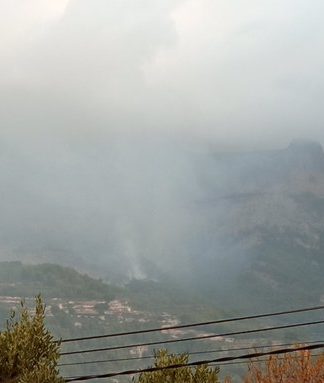Email
January 16, 2016
Dear CB News
I am prompted to write after reading the article ‘Why Spain is Barking Mad’.
The writer, Samantha Kett, has mixed up two Catholic saints, both called St Anthony.
The festivities celebrated in the region of Valencia on and around January 17 are in honour of St Anthony the Great, also known as St Anthony of the Desert, not in honour of St Anthony of Padua.
St Anthony the Great was a Christian monk, born at Mt Colzim in Egypt in AD356.He came from a wealthy family and after being orphaned and left in the care of his sister, decided to follow the Evangelical Counsel of Jesus which says ‘If you want to be perfect, sell what you have and give to the poor and you will have treasures in heaven’, hence the fact many locals give to the poor around his feast day.
He is known locally as Sant Antoni del Porquet or Saint Anthony of the Piglet, as he is often depicted with a piglet by his side.
Anthony spent distinct periods of his life alone in the desert, living in a cell on a small ration of bread, and may at one time have been a swineherd while he was there. He is appealed to for the curing of infectious diseases. Shingles used to be called St Anthony’s fire after St Anthony the Great.
Saint Anthony of Padua has nothing to do with local festivities in January. He was born in Lisbon in 1195 and died in Padua in 1231. His Saint’s Day is June 13, commemorating the date of his death. He is the patron saint of Padua, Lisbon, Brazil, as well as the poor and travellers.In Lisbon, they celebrate Santo Antonio on June 13 with fireworks, sangria and, ironically, plenty of pork!
There is a school in Alicante named San Antonio de Padua and I am sure the head teacher or even his young pupils can give you plenty of facts on Anthony of Padua.
Let’s hope no one from Padua read your article as they have every right to be cross at such journalistic error. You should check your facts before committing them to print.
Regards
Elinor Lowe
Dear Mrs Lowe
Thank you for clarifying this and I’ll make sure I don’t confuse the two Saint Anthonies ahead of next year’s porrats and animal blessings. Your feedback is greatly appreciated, and thanks for pointing out my slip-up – which has been duly noted – and for your interest in my article. I also hope you were able to enjoy the San Antón celebrations in your area – always one of my favourites, as the mother of various animals, and I’m sure my enthusiasm for it came through in the report.
Samantha Kett

































